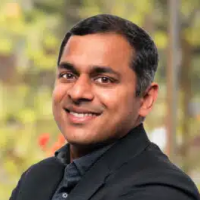Abstract: Wireless communication systems have become ubiquitous and are now critical across a wide range of applications. This pervasive presence brings to the forefront significant challenges, not only concerning security and privacy but also in the realm of technology coexistence and spectrum sharing. In this talk, I will present vulnerabilities that we identified in the design and implementation on various wireless systems, including 3GPP 5G, Bluetooth, and avionics systems like ILS and ACARS.
We note that existing wireless security measures typically focus on end-to-end data confidentiality and integrity. However, numerous design flaws remain that expose these systems to privacy breaches and denial-of-service attacks. Such vulnerabilities can allow adversaries to track users, analyze traffic patterns, drain device batteries, and disrupt communication with minimal effort. The increasing availability of software-defined radios and open-source tools has made these attacks accessible even to non-expert adversaries.
Moreover, I will discuss advanced defense mechanisms, particularly how machine learning can be leveraged to enhance spectrum sharing and develop robust anti-jamming techniques. These innovations are crucial as we strive to secure wireless systems against both current and emerging threats.



